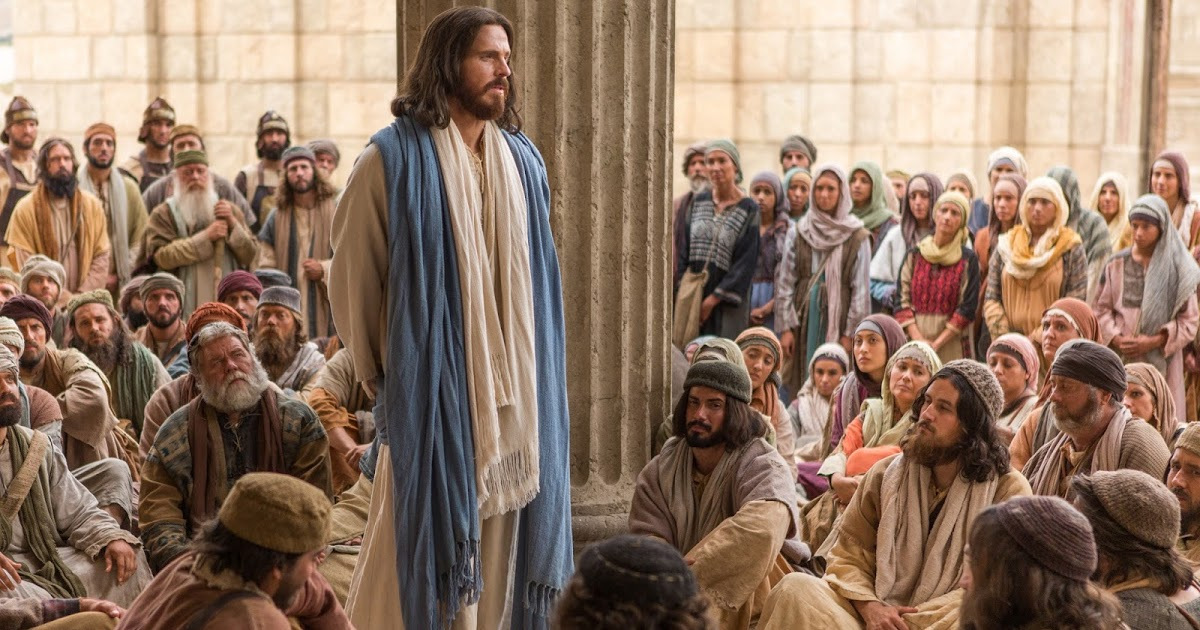 Today’s gospel brings us Jesus in His hometown preaching in the synagogue at Nazareth. He was well received and accepted first. The townspeople were impressed and amazed by his teaching. They marveled at the words. But things changed quickly. Soon it turned to hatred. The same people turned on Him when Jesus told them a truth they did not want to hear. They rejected Him and tried to kill Him because of the truth. Jesus went beyond what they wanted to hear. So, what happened? Why did they reject Jesus? What did he say to them ? Well, Jesus reminded the truth. He challenged their ideas, their convictions and their beliefs. That made these people angry. You have to keep in mind that Luke wrote his gospel for the Jews. Jesus wanted to tell the Jewish people that salvation is for everyone. They were not the only ones to be saved. God also cared for Gentiles. To prove them that, Jesus reminded them two events in Jewish history. One was during the life of Elijah, the prophet. The Hebrews in Elijah’s time were suffering. People were dying for hunger. A prophet came from God to a widow and because of her faith, God saved her. The problem was she was not a Jew, she was a Gentile. The same was true in the story of Elisha . Leprosy was a plague spreading throughout Israel but God used a prophet to save only one leper, and he was a gentile.
Today’s gospel brings us Jesus in His hometown preaching in the synagogue at Nazareth. He was well received and accepted first. The townspeople were impressed and amazed by his teaching. They marveled at the words. But things changed quickly. Soon it turned to hatred. The same people turned on Him when Jesus told them a truth they did not want to hear. They rejected Him and tried to kill Him because of the truth. Jesus went beyond what they wanted to hear. So, what happened? Why did they reject Jesus? What did he say to them ? Well, Jesus reminded the truth. He challenged their ideas, their convictions and their beliefs. That made these people angry. You have to keep in mind that Luke wrote his gospel for the Jews. Jesus wanted to tell the Jewish people that salvation is for everyone. They were not the only ones to be saved. God also cared for Gentiles. To prove them that, Jesus reminded them two events in Jewish history. One was during the life of Elijah, the prophet. The Hebrews in Elijah’s time were suffering. People were dying for hunger. A prophet came from God to a widow and because of her faith, God saved her. The problem was she was not a Jew, she was a Gentile. The same was true in the story of Elisha . Leprosy was a plague spreading throughout Israel but God used a prophet to save only one leper, and he was a gentile.
This was painful for the Jews of the time of Jesus to accept it because they were considered themselves as God’s chosen, that no one else would be saved. That God’s love and favor were manifested only in and among them. That is why when Jesus challenged them about that belief , they were deeply upset. Jesus’ words offended them because He was reminding them that what they believed about God’s favor was not true. God is God. God is for everyone, for all the peoples in the world. The problem is, change is so difficult. It costs us to change, to change our attitudes toward people, to change the way we behave, to change our patterns of living. This is what Jesus was about: He was not interested in simply having nice intellectual discussions about God. He was calling them to change the way they understood God, the way they understood themselves and the way they should treat other people. So the people of Nazareth realized that they were facing a big challenge. They did not accept to change. That is why they rejected Jesus and wanted to kill Him.
I think the same happens today. When we hear words pleasing to us, we accept them, but when they disturb our consciences we might well dismiss them as worthless. There are people who choose a church where they get good feelings from warm and fuzzy words. Certainly it is true that the gospel is a great word of consolation and refreshment, but it can also be harsh and demanding, as Jesus himself could be harsh and demanding. Our “precious” savior can also be an “angry” God. The people in the synagogue were so upset they wanted to drive Jesus over the edge of a cliff, but His time had not yet come. Now, How do we often react when we are challenged? How do we react when the message of God requires a radical change? We dismiss or just forget the message?
My brothers and sisters we cannot take Jesus on our terms but on his terms. We cannot make Jesus into who we would like Him to be. Many of us want to shape God into being like us. We want Him to think like a capitalist, a liberal, a conservative or whatever. We want God to do our will. All these ideas about God need to be challenged , and then we need to change. We must accept Him on the basis of who He wants us to be. Also, when we examine our spiritual life, we realize that we are like the people of Nazareth in the sense that when the message of God pleasing to us, we accept them, but when they disturb our conscience we tend to forget or ignore them.
There are people who choose a church where they get good feelings from the message of God. Certainly it is true that the gospel is a good news . Jesus’ teaching consoles us for it is a gospel of love and mercy, peace and reconciliation. But it is also a gospel which says “deny yourself, take your cross and, follow me,” a gospel which calls for a conversion of heart and change in the way we live. Take your cross and follow me. Let us pray …. let us ask God the grace to change what we have to change and to listen to the gospel with open heart and mind.




